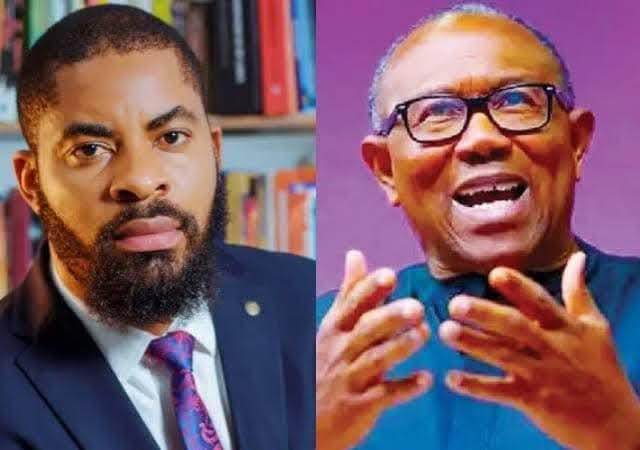IN a surprising turn of events, renowned human rights lawyer and political activist Deji Adeyanju announced on Wednesday that he would no longer criticize Peter Obi, the former governor of Anambra State and presidential candidate of the Labour Party in the 2023 Nigerian general elections.
Adeyanju, known for his outspoken views and engagement in Nigeria’s political discourse, shared his decision in a post on his social media handle, citing a significant change in his perspective on Obi’s leadership and political stance.
In his statement, Adeyanju explained that after reflecting on recent developments in Nigerian politics, he had come to realise that his criticisms of Obi were, in some instances, misinformed or based on misunderstandings of the former governor’s intentions and actions. The decision to cease his public criticisms comes after a period of self-reflection, he said, in which he had carefully evaluated the positions taken by Obi, especially in relation to Nigeria’s ongoing struggles with governance, corruption, and economic challenges.
“I have always spoken out on issues I believe are crucial to the advancement of this country. However, I’ve come to understand that my criticisms of Peter Obi were sometimes rooted in the heat of political contest, and not necessarily in the pursuit of truth or a better Nigeria,” Adeyanju wrote.
“Obi may have his flaws, but I believe it’s time to focus on constructive dialogue rather than baseless attacks.”
The decision marks a noticeable shift for Adeyanju, who was one of Obi’s critics during the election cycle. Throughout the campaign, Adeyanju had voiced concerns about Obi’s political platform, particularly questioning his capacity to challenge the entrenched political system.
However, following recent engagements and public statements from Obi, Adeyanju now believes that the Labour Party Leader’s approach to national issues, particularly his stance on fighting corruption and his calls for unity, align more with his own vision for Nigeria’s future.
Adeyanju also acknowledged that the political climate in Nigeria had grown increasingly toxic, with public figures often becoming the target of attacks for expressing differing views. He stressed that the nation needs to move beyond partisan divisions and focus on building a unified front to address the challenges facing the country.
“Criticism should not be personal. It should be about the ideas and policies that will shape our future. It’s about Nigeria’s progress, not petty politics,” Adeyanju stated.
“Peter Obi deserves the space to lead and make decisions, just like any other political leader in this country.”
His announcement has sparked a wave of reactions on social media, with supporters of both Adeyanju and Obi weighing in on the development. While some applauded Adeyanju for his maturity and willingness to reassess his position, others questioned whether this shift would have any real impact on Nigeria’s political landscape.
Peter Obi, who is still a prominent figure in Nigerian politics, has yet to respond publicly to Adeyanju’s decision. However, his supporters have already begun celebrating the shift as a sign of growing respect for Obi’s leadership style and political philosophy.
For Adeyanju, the decision to end his criticisms of Obi is more than just a political gesture. It is an attempt to set a higher standard for political discourse in Nigeria, one where differences are debated with civility and focused on the nation’s greater good rather than on personal animosities. As the country continues to grapple with issues like security, economic instability, and political reform, Adeyanju’s pledge signals a call for unity and maturity in Nigeria’s political engagement moving forward.
In the end, this shift in Adeyanju’s stance could be a pivotal moment in the country’s evolving political narrative, encouraging others to reconsider their positions and prioritize the future of the nation over political rivalry.
Eighteen-Eleven Media


